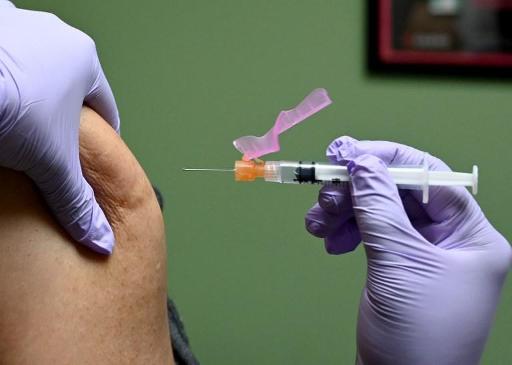The European Commission announced on Wednesday new measures to prepare Europe for the increased threat of coronavirus variants.
The new European bio-defence preparedness plan against COVID-19 variants, called “HERA Incubator”, will work with researchers, biotech companies, manufacturers and public authorities in the EU and globally to detect new variants, provide incentives to develop new and adapted vaccines, speed up the approval process for these vaccines, and ensure scaling up of manufacturing capacities.
“HERA” stands for the European Health Emergency Preparedness and Response Authority. It will take some time until the new agency will be established. The preparatory actions on new variants will start off immediately but not date is set for when the agency will become operational. The Commission will make a legislative proposal for the agency only towards the end of the year.
“Our priority is to ensure that all Europeans have access to safe and effective COVID-19 vaccines as soon as possible,” said Commisison President, Ursula von der Leyen, at a press conference presenting the new actions (17 February).
“At the same time, new variants of the virus are emerging fast and we must adapt our response even faster. To stay ahead of the curve, we are launching today the HERA Incubator. It brings together science, industry and public authorities, and pulls all available resources to enable us to respond to this challenge.”
The “HERA incubator” will also serve as a blueprint for the EU's long‑term preparedness for health emergencies.
Key actions include measures to boost preparedness, develop vaccines for the variants and increase industrial production. One priority is to develop specialised tests for new variants, and to support genomic sequencing in Member States with at least €75 million in EU funding.
The aim is to reach the target of of 5% of genome sequencing of positive tests to help identify variants, monitor their spread in populations, and screen their impact on transmissibility.
The Commission will also launch the VACCELERATE COVID-19 clinical trial network, bringing together 16 EU Member States and five associated countries including Switzerland and Israel to exchange data and progressively also include children and young adults as participants in clinical trials.
Another priority is to speed up regulatory approval of adapted vaccines. Based on the annual influenza vaccine model, the EU will provide accelerated approval for adapted COVID-19 vaccines by adapting the regulatory framework, such as amending the regulatory procedure to enable the approval of an adapted vaccine with a smaller set of additional data submitted to EMA on a rolling basis.
Third but not the least, the Commission intends to ramp up production of COVID-19 vaccines by updating or concluding new Advance Purchase Agreements to support the development of new and adapted vaccines through EU funding. EU will also consider sources from outside the EU if needed, provided they meet the EU safety requirements.
The Commission is proud of the EU Vaccine Strategy which secured access to 2.6 billion vaccine doses as part of the broadest global portfolio of safe and secure COVID-19 vaccines. After teething problems, the vaccination process in the member states is progressing, according to the Commission president.
“Less than a year since the virus appeared for the first time in Europe, vaccination has started across all Member States. This is a remarkable achievement of European and global advanced research and vaccine development, condensing what usually takes 5-10 years in just over 10 months.”
She added that to her knowledge no member state had concluded any bilateral contracts with vaccine producers and there was not need for it with the volume that the Commission has ordered. She issued a warning against buying vaccines on the black market.
At the same time, there are challenges to scale-up industrial vaccine production to keep pace. In order to boost production capacity in Europe, a much closer, more integrated and more strategic public-private cooperation with industry is needed. The Commission has set-up a Task Force for Industrial Scale-up of COVID-19 vaccines to detect and help respond to issues in real-time.
The goal set by the Commission is to vaccinate 70 % of the adult population in all member states by summer but that might be a moving target considering the emergence of new variants and the uncertainty about the duration of the protection against COVID-19. To achieve group immunity a majority of the whole population, including children, needs to be vaccinated.
According to several Belgian experts, reaching the target set by Belgium’s federal government to vaccinate at least 70% of the population will not be enough to get the coronavirus under control. Many of the experts are advocating for a vaccination rate of 80% or even 90%. President von der Leyen did not take any questions about this issue at the press conference.
M. Apelblat
The Brussels Times

